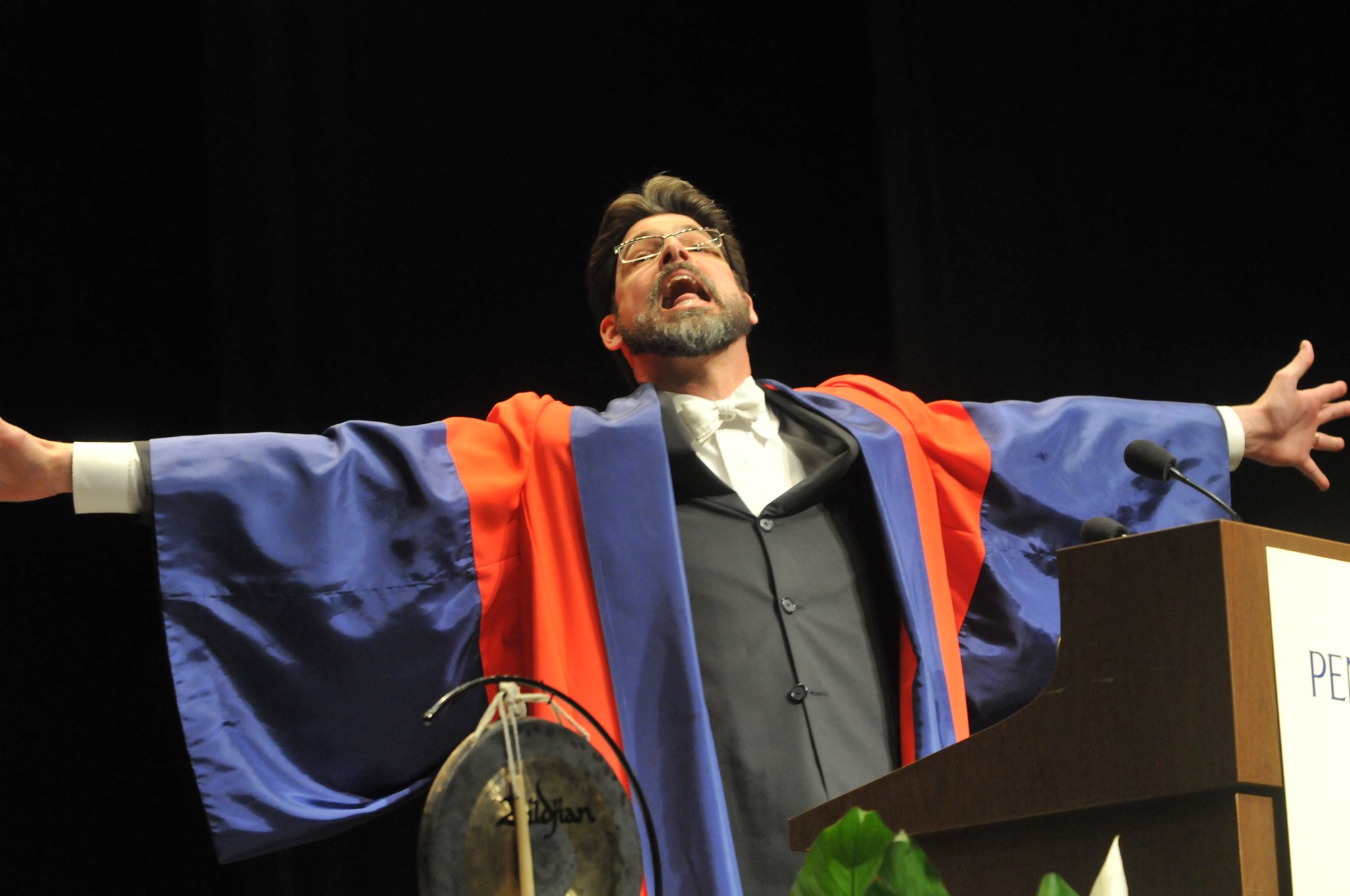From my “other” blog as Dean of the SHC. I share it here because I am not sure that everyone would agree with my definition of a scholar. (I should note that our students are “Schreyer Scholars” so there is a bit of a play on words.)
This week we met with the faculty who will be reading this year’s applications to the SHC. They are a great group of scholars and very dedicated to our students. Each will be reading 40+ applications and each application will be read at least three times, once in our office and additionally by two faculty readers. Part of what we discussed was our approach to reading the applications, the essays, activities, letters of recommendation and so on. What we look for is no secret, we discuss it at every recruitment event that we have so I thought I would share with you a few of the things that we consider.
First and foremost we look for evidence of intellectual engagement and critical thinking. The essay question about copyright in the digital age is a prime example (but of course not the only one). The question could simply be answered with an assertion that copyright is law and we must all follow the law or, conversely, that copyright is decrepit and is useless in this modern, digital age. Both are valid positions but unless the student engages with the merits of both positions they have shown no evidence that they are thinking critically about the issue.
It occurred to me that we might compare this to computers. Computers are inherently dumb. The may contain all sorts of data, but they do not, on their own, do anything with all of that information. A student who can conjugate every verb in Hebrew (even the weak, hollow verbs) or who can perform every math function thrown at them is not necessarily smart. They may be knowledgeable, but the real question and the hallmark of a scholar is what do they do with that knowledge? The simple memorization of facts and figures is not learning, it is training. Thinking critically and creatively, using the data that we posses, is what it means to be a scholar.
And how we use that knowledge and the opportunities that we have been given is equally important. Thus we ask students how they hope to make a difference in the world. We want to see that they view the world and their academic endeavors more broadly than simply acquiring knowledge or using that knowledge and training to achieve a high paying or prestigious position. Many high schools today require community service, so we want to know if the student initiate their community service project. What motivated them to do so? We want to know how being involved in community service changed the student’s view of others.
For many people and institutions the pursuit of knowledge is an admirable end in and of itself. That is not our view. Knowledge is nothing but data. Without wisdom and application it may as well remain undiscovered. That is why we say, with all sincerity, that at Penn State and in the Schreyer Honors College we are seeking to shape the people who shape the world. We are looking for true scholars, those who will take their knowledge and skills and put them to use for bettering humanity.
Cliché? Maybe. Idealistic? Absolutely. But that is what it means to be a Schreyer Scholar: “men and women who will have an important and ethical influence in the world, affecting academic, professional, civic, social, and business outcomes.”





4 thoughts on “What it means to be a scholar”
And here I thought it was acceptable to think of scholarship as the expression of particular cultural identities – gender-based, ideology-based, confessionally-based. Are you really trying to put the word “university” back into the university?
Here I thought that an objective analysis of scholarship in the humanities leads to the conclusion that it really about weaving thought experiments, rather than developing testable hypotheses, isolating control beliefs, and subjecting them to a rigorous scrutiny.
Very nice, Chris. Are you familiar with Martha Nussbaum’s Cultivating Humanity? If not, spend an hour or two with it. You will find much grist for your mill.
Thank you John. I saw Martha speak once and have been meaning to get the work. I will do so now!
Hear, hear! Well said. (How do you clap on the internet?)
*Claps.*